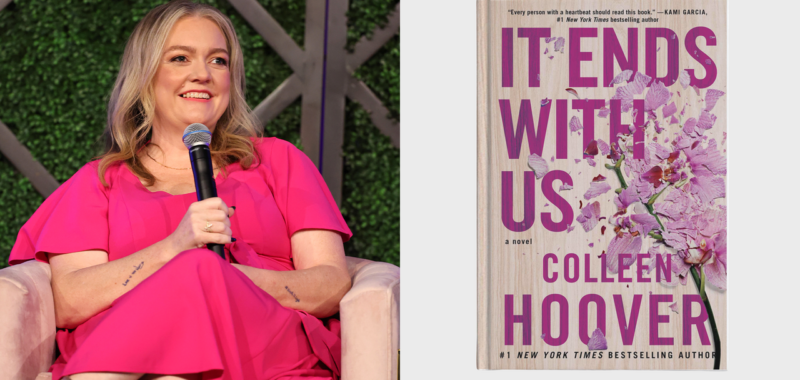Of course there’s a Colleen Hoover controversy. The author has outsold the Bible and once held six of the 10 positions on The New York Times‘s paperback fiction best-seller list. There are over 44 million posts on Booktok discussing her work, and she’s the second most followed person on Goodreads. (Just behind Stephen King and ahead of Sarah J. Maas.) This month, Blake Lively stars in a big-screen adaptation of It Ends With Us, one of Hoover’s most popular novels. No author can become that massively successful without some criticism or backlash.
However, the divide around Hoover is a thorny one. Fans in the CoHort, as her loyal followers are called, describe her stories as “raw,” “powerful,” and “heart-wrenching” depictions of women while others say she romanticizes abuse. How valid are the critiques? Here’s everything you need to know about the Colleen Hoover controversy in this edition of TL;DR.
Give me the TL;DR.
Basically, critics of Hoover say several of her novels—It Ends With Us, in particular—deliver an anti-feminist message, rely on misogynistic tropes, and even go so far as to romanticize domestic violence.
It reached a boiling point last year when Hoover announced the release of a coloring book based on the main character of It Ends With Us, a woman in an abusive relationship. Many criticized this as a tone-deaf and inappropriate way to sell merch, and the backlash was so vocal that Hoover and her publisher decided to cancel its publication. “I hear you guys and I agree with you,” Hoover posted on Instagram at the time. “No excuses. No finger-pointing. I have contacted the publisher to let them know I would prefer we don’t move forward with it. Thank you for the respectful discourse and accountability. Nothing but love.”
Her publisher, Atria Books, also issued a statement, saying it was meant to be “uplifting and empowering.”
X content
This content can also be viewed on the site it originates from.
Wait, I need more. What’s the background here?
The critique that Hoover’s work is anti-feminist extends to several of her novels—but for the purposes of this article, let’s just focus on It Ends With Us. Not only is it one of Colleen Hoover’s most popular books, but it’s also the first to get the big-screen treatment.

